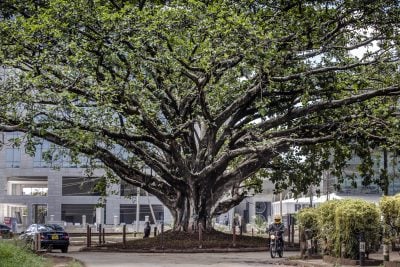After more than a year of inactivity, the Eurobond market in Sub-Saharan Africa has been revived by three countries: Côte d’Ivoire, Benin and Kenya. The trio, whose recent Eurobonds were overwhelmingly oversubscribed in a show of pent up investor demand, raised around $4.8bn in total. “It is stunning how quickly sub-Saharan Africa’s Eurobond market has re-opened after being entirely shut for the whole of 2023,” says Charlie Robertson, head of macro strategy at FIM Partners.
A Eurobond is a debt instrument that’s denominated in a currency other than the home currency of the country or market in which it is issued. Côte d’Ivoire in January raised $2.6bn through two bonds with maturities of nine and 13 years. The bonds have an interest rate of 8.5%, as reported by Bloomberg, and attracted more than $8bn in orders, a record for a West African sovereign issuer.
Benin also tapped the market with a 14-year bond worth $750m at 8.375% in February – its first-ever dollar-denominated bond. Kenya, the biggest economy in East Africa, followed suit and issued a seven-year note for $1.5bn at 10.375%. Kenya’s Eurobond sale had a noticeable effect on the Kenya shilling, which appreciated sharply against the US dollar in February. Analysts attributed the move to the inflow of dollars from the Eurobond issuance.
The Covid-19 pandemic, the conflict in Ukraine and the surge in global interest rates had a severe impact on many Sub-Saharan African economies. As a result, most of them lost access to international capital markets in 2022 and 2023, as borrowing in foreign-currency denominated debt became prohibitively expensive. The recent successful issuances by Côte d’Ivoire, Benin and Kenya are a sign that the tide is finally turning and that global financial conditions are getting more conducive for African nations to tap into the international debt markets.
Robertson argues that recent actions to support the fiscal stability of several countries in Africa and around the world by the International Monetary Fund (IMF) have boosted the confidence of investors who are looking for higher returns in emerging markets. The IMF has “backstopped countries ranging from Argentina to Kenya and Pakistan and that has given the market the reassurance it needed that the problems in Ethiopia, Ghana, Sri Lanka and Zambia won’t spread,” he says.
Pouncing on the opportunity
With global interest rate cuts expected to take effect later in 2024, analysts predict that more African countries will issue Eurobonds to take advantage of the favourable borrowing conditions. “Global rate cuts will be more beneficial to potential African issuers, as they lower the yield investors will demand on the issues,” says Churchill Ogutu, an economist at IC Group, an Africa-focused investment bank.
Timothy Wambu, head of equity research at Absa Bank Kenya, concurs that African countries may view impending interest rate cuts as a signal to pounce on the opportunity to raise cheaper debt in the international market. “The view that the Fed is likely to commence on its monetary easing path this year is a catalyst,” he tells African Business in his independent analysis as an investment professional.
“A number of countries with upcoming maturities might be incentivised to raise new issues to refinance. The benefit is that countries can refinance and lengthen the average maturity of their debt. The risk remains of countries loading on too much debt as they are seduced by cheaper prices.”
Ogutu, however, contends that African governments that tap into international markets need to keep a close eye on their key debt ratios as many countries are currently experiencing debt distress. “As per the IMF, close to half of African countries are either at risk or high risk of debt distress. African governments have a binary choice between increasing revenue or reducing spending as a way of restoring debt stability.”
Grappling with higher tax demands
According to Babatunde Oladapo, executive secretary of the West African Tax Administration Forum (WATAF), there is a “strong appetite” for borrowing among African governments. This will fuel increased Eurobond issuances on the continent in 2024 and beyond. “At present, most African countries have a narrow fiscal space. Therefore, external funding sources remain extremely relevant to the functioning of these economies,” he tells African Business.
The IMF estimates that the average debt ratio in sub-Saharan Africa has almost doubled in just a decade – from 30% of GDP at the end of 2013 to almost 60% of GDP in 2022, underscoring the rapid pace at which public debt has ballooned on the continent.
Oladapo explains that African countries’ heavy reliance on debt has resulted in a steady increase in debt service costs, compelling tax agencies to raise their domestic revenue collection targets year after year. “Within the budget estimates in most African countries, debt servicing is a recurrent expenditure that now competes with the provision of goods and services or other recurrent expenditure items, putting pressure on the tax agencies to increase revenue targets, especially among the corporate sector.”
He makes the case that countries with strong and effective tax systems are usually more capable of paying back their debts, and that most African countries urgently need to improve collections from personal income taxes. According to Oladapo, personal income taxes – including wealth tax, taxation of high-net-worth individuals, and taxation of the informal sector – have remained poorly tapped sources of domestic revenue. He also calls for an increased focus on mobilising revenue from the extractives sector in view of the continent’s vast natural resources.
“Unless African countries improve their direct (income) tax collections and create an effective mobilisation of revenue from the extractive sector, the pressure for external borrowing will remain high.”
To rein in its debt, Africa will also have to tackle the thorny issue of narrowing its budget deficits. According to the IMF, Sub-Saharan African countries tend to rely excessively on expenditure cuts to reduce their budget deficits. Although this may be warranted in some circumstances, the multilateral lender argues that revenue measures, like eliminating tax exemptions or digitising filing and payment systems, should play a greater role.
“Mobilising domestic revenue is less detrimental to growth in countries where initial tax levels are low, whereas the cost associated with reducing expenditures is particularly high given Africa’s large development needs,” notes the lender.
Reform must accompany increased borrowing
“Countries that are currently in debt distress are advised to reform fiscal institutions and macroeconomic structures before seeking funding from the issuance of instruments such as the Eurobond,” warns Oladapo.
Some analysts claim that African countries are relying too much on Eurobonds, not to fund development, but to refinance their existing debt – the proverbial “borrowing from Peter to pay Paul”. Few countries use the debt raised in international markets to invest in promising economic sectors, something Oladapo believes should change. “Eurobonds should be targeted to execute economic projects only. Foreign capital must be utilised to fund a part of the budget deficit that promises returns.”
He also contends that the average maturity of African Eurobonds should be lengthened to terms not less than 10 years, as this will allow for more efficient public debt management. “The terms of the foreign capital must be well designed to allow a reasonable amount of time to grow the economies.”
The resurgence in Eurobond issuance by African countries may also expose the vulnerability of local currencies in the continent. The IMF says that about 40% of public debt is external in sub-Saharan Africa and over 60% of that debt is in US dollars for most countries. It notes that, since the beginning of the pandemic to the end of 2022, exchange rate depreciations in Africa have contributed to the region’s rise in public debt by about 10 percentage points of GDP on average, holding all else equal.
This points to the arduous task ahead for African central banks – to keep their local currencies stable over the next few years, as their countries take on more foreign debt.
Want to continue reading? Subscribe today.
You've read all your free articles for this month! Subscribe now to enjoy full access to our content.
Digital Monthly
£8.00 / month
Receive full unlimited access to our articles, opinions, podcasts and more.
Digital Yearly
£70.00 / year
Our best value offer - save £26 and gain access to all of our digital content for an entire year!
 Sign in with Google
Sign in with Google 



